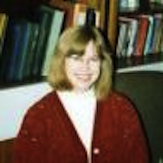
University of Birmingham, England
Friday, March 31, 2000
Veranda Room 3615 Locust Walk
Event Schedule:
9:30 Opening Remarks:
Introduction by Professor Tukufu Zuberi, Director of the African Studies Center
10:00 – 11:15 AM
Panel I: "Interpretation of Oral Texts" Chair: Prof. Anne Bailey, Department of History, University of Pennsylvania
Discussants:
Tonya Taylor, Departments of Anthropology and Graduate Program in Folklore & Folklife
David Samper, Graduate Program in Folklore & Folklife
Suggested Readings:
"I Could Speak Until Tomorrow: Oriki, Women and the Past in a Yoruba Town." Edinburgh University Press for the International African Institute. 1991.
"Interpreting oriki as history and as literature," in Discourse and its Disguises, ed. Barber and Moraes Farias, 1989 (13-23).
"Yoruba Oriki and deconstructive criticism," Research in African Literatures, 15, 4, 1984. (497-518).
"Preliminary notes on audiences in Africa" in Africa 67(3):347-362 (1997)
"Discursive strategies in the texts of Ifa and in the 'Holy Book of Odu' of the African Church of Orunmila." In Self-Assertion and Brokerage, 1990, ed. P.F. de Moraes Farias and Karin Barber. Birmingham: Birmingham University African Studies Series 2, Centre of West African Studies, pp. 196-240.
11:15 – 11:30
Break
11:30-12:45 PM
Panel II: "Popular Culture" Chair: Prof. Dan Ben-Amos, Department of Folklore & Folklife, University of Pennsylvania
Discussants:
Cati Coe, Graduate Program in Folklore & Folklife
Wendi Haugh, Department of Anthropology
Suggested Readings:
"Popular Arts in Africa" in African Studies Review 30(3):1-78 (1987) plus several commentaries and her response "Preliminary notes on audiences in Africa" in Africa 67(3):347-362 (1997)
"Readings in African Popular Culture"(1997) "Introduction" (1-12) "Popular Reactions to the Petro-Naira" (91-98; orig. 1982)
"West African Popular Theater" (1997) "Introduction" (vii-xix) "The Eda Theatre and The Secret is Out" (183-209) "Text of The Secret is Out" (210-276)
12:45 – 2:15 PM:
Lunch Gold Standard 36th & Locust Walk
2:15 – 3:30 PM
Panel 3: "Women, Power, Religion in West Africa" Chair: Prof. Sandra Barnes, Department of Anthropology, University of Pennsylvania
Discussants:
Solimar Otero, Graduate Program in Folklore & Folklife -Angela Moore, Department of Anthropology
Rudolph T. Ware, Department of History
Suggested Readings:
Barber, Karin.1981. "How man makes god in West Africa:Yoruba attitudes towards the orisa ." Africa 51, no. 3: 724-745.
Barber, Karin. 1990. "Ormkl, women and the proliferation and merging of orisa ." Africa 60 ( 3): 313-337.
Barber, Karin 1990a. "Discursive strategies in the texts of Ifa and in the 'Holy Book of Odu' of the African Church of Orunmila." In Self-Assertion and Brokerage, ed. P.F. de Moraes Farias and Karin Barber. Birmingham: Birmingham University African Studies Series 2, Centre of West African Studies, pp. 196-240.
Barber, Karin1994. "Polyvocality and the individual talent: three women oriki - singers in Okuku." In The Yoruba Artist, eds. Abiodun, Drewal, and Pemberton. Washington and London:Smithsonian Press.
Barber, Karin 1994a. "Going too far in Okuku: some ideas about gender, excess, and political power."In Gender and Identity in Africa, eds. Reh and Gudrun Ludwar-Ene. Munster/Hamburg.
3:30 – 3:45 PM:
Break
3:45 – 5:00 PM
Workshop: "Yoruba-West African Popular Theater" Room: Stiteler Hall B6
Recommended reading:
1994. "Yoruba Popular Theater: Three Plays by the Oyin Adejobi Company." Authored with Bayo Ogundijo. Play "Laniyonu" and Introduction.
During this workshop, we will use the above readings as common basis from which to discuss issues such as problems of textual analysis, translation, how to analyse live, ephemeral performances, and so on by looking at the text and viewing excerpts of videos of the performances.
All of the readings are available at the African Studies Center 647 Williams Hall.
More About: Karin Barber
For inquiries please contact:
Dr.Ali B. Ali-Dinar, Ph.D, aadinar@sas.upenn.edu
(215) 898-6610
